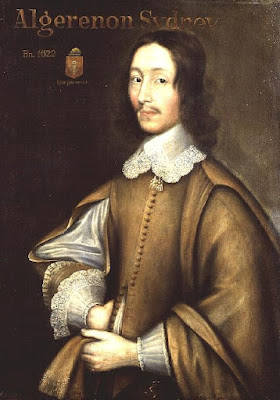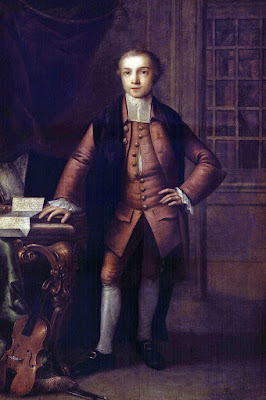“Treason, proditio, in its very name (which is borrowed from the French) imports a betraying, treachery, or breach of faith. It therefore happens only between allies, faith the mirror [footnote] : for treason is indeed a general appellation, made use of by the law, to denote not only offences against the king and government, but also that accumulation of guilt which arises whenever a superior reposes a confidence in a subject or inferior, between whom and himself there subsists a natural, a civil, or even a spiritual relation ; and inferior so abuses that confidence, so forgets the obligations of duty, subjection, and allegiance, as to destroy the life of any such his superior or lord.”
Algernon Sidney
Algernon Sidney was executed some four decades before Sir William Blackstone was born
Algernon Sidney was executed some four decades before Sir William Blackstone was born. Specifically, our subject Algernon Sidney was executed in 1683, and Sir William Blackstone would not be born until 1723. (But I’m getting ahead of myself here.) Blackstone was in his forties when he wrote his “Commentaries on the Laws of England.” This was a four-volume work, which gave a general overview of its chosen subject. Its fourth and final volume was published in the year 1769. This is the volume that I will be quoting from here. (Incidentally, all quotations from Blackstone’s “Commentaries” in this particular blog post will be from Book 4, Chapter 6 – a chapter entitled “Of High Treason.”)
Statue of Sir William Blackstone































